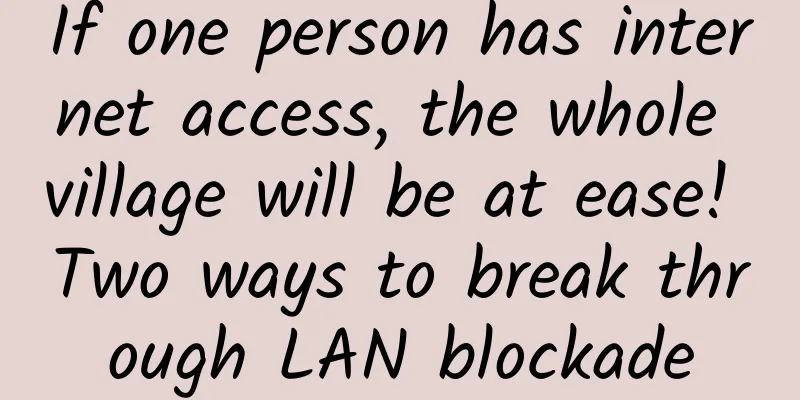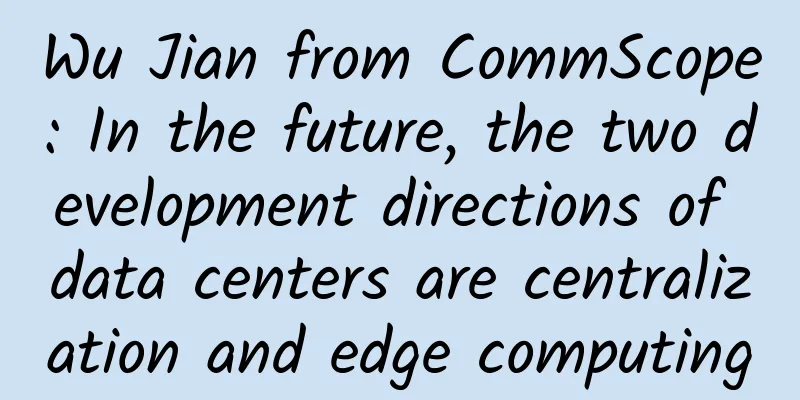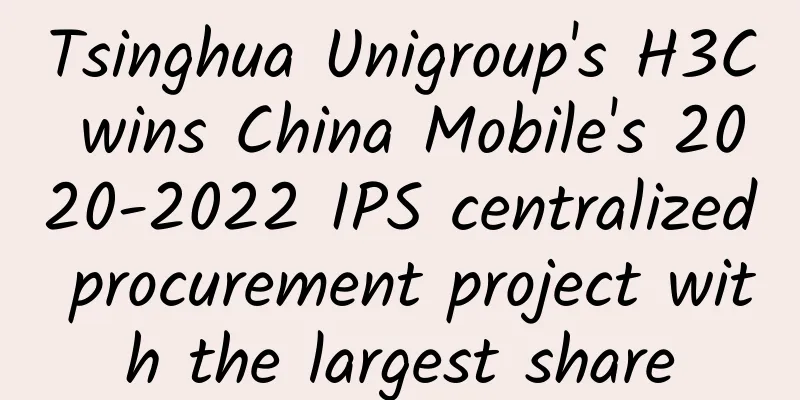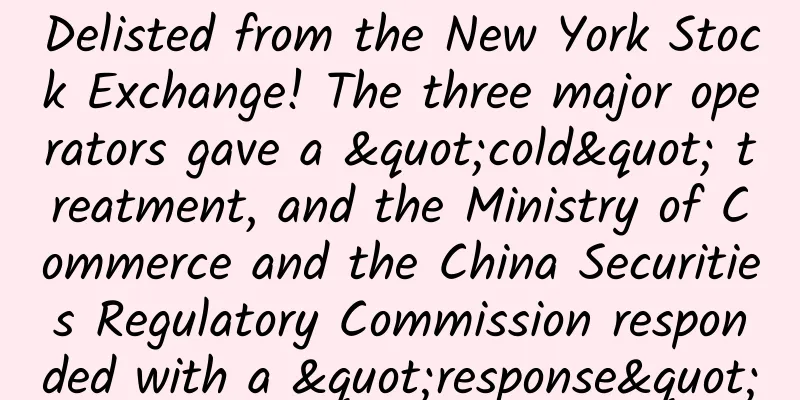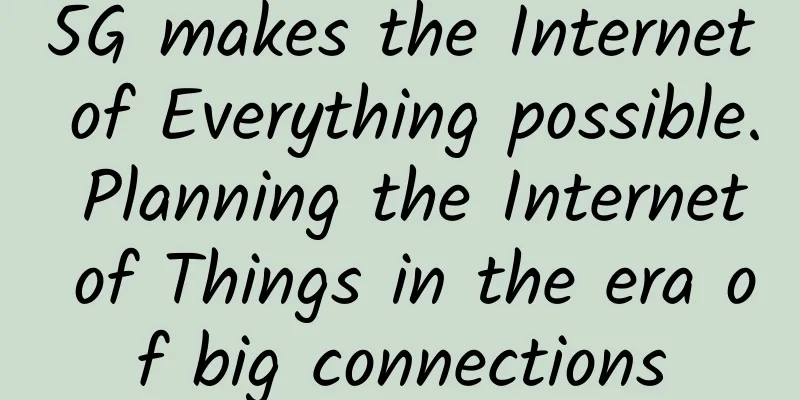4G speed reduction to make way for 5G? The three major operators collectively denied it. Why do users' perceptions differ from official statements?
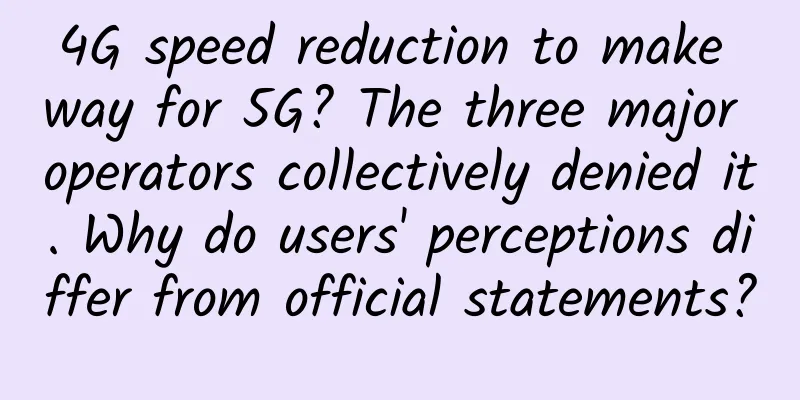
|
Every change of dynasty in history is a readjustment of the original interest structure, and the same is true for the changes in the modern communications industry. The ascension of the "new emperor" of 5G is not just a simple process of technological progress, but will affect all aspects of society, economy, culture, etc. How 5G and its predecessor, 4G, should get along is a question worth thinking about.
Recently, just when a small number of users have been the first to experience the high-speed, low-latency experience brought by the 5G network, some doubts have quietly emerged, saying that operators will limit the speed of 4G networks in order to promote 5G networks. Some people say that operators are doing "small moves" to promote 5G. The online response to the slow 4G network speed (@机器猫) There is even a claim that the order to slow down came from the relevant department? The speed reduction order from the relevant department was reported online (@Occam's razor) Under the relevant posts, many netizens listed their own real experiences to try to prove this point:
Some netizens have also conducted actual tests and found that theoretically the 4G network speed should be 100Mbps, equivalent to 12.5M/s, but the actual speed is only 1.51M/s, a full 11M/s short. Is this really the case? Is it true that “4G speeds are slowing down to make way for 5G”? For this reason, many media outlets called the customer service staff of the three major operators with questions, and the responses they received were all "negative", saying that they had not received any notification regarding the 4G speed reduction. Zhang Yunyong, director of China Unicom Research Institute, even responded that the operators would not reduce the 4G network speed, but would increase it instead. 4G speed reduction is not an illusion Logically speaking, many of these rumors on the Internet are illogical. It is understood that the top priority of the relevant departments at present is to supervise the operators to increase speed and reduce fees. At the regular policy briefing held by the State Council Information Office on August 8, Han Xia, director of the Information and Communications Administration of the Ministry of Industry and Information Technology, once again emphasized that the Ministry of Industry and Information Technology should strengthen the construction of network support capabilities... continue to promote speed increase and fee reduction, reduce the average broadband fee level of small and medium-sized enterprises, and actively promote information consumption to expand domestic demand. In this context, it is really unreasonable to issue a "speed reduction" order.
In addition, my country's 5G network is still under construction, and operators still have a large funding gap for 5G construction. Choosing to reduce the 4G network speed at this time will not force consumers to use 5G. On the contrary, if an operator reduces the 4G speed, it may cause consumers to be dissatisfied and switch to other operators, which is not worth the loss. From a profit perspective, operators are actually opposed to upgrading. It is in their interest to give full play to the profit value of old equipment and not invest in new equipment. If this is the case, why is there a discrepancy between user perception and official statements? This may be related to the growth in the number of users per unit area and the growth in traffic per single user. On the one hand, the number of mobile users in my country is still growing, which has driven the explosive growth of traffic demand. As of the end of June, the total number of mobile phone users of the three major operators reached 1.59 billion, a year-on-year increase of 5%. In the first half of the year, the cumulative mobile Internet traffic reached 55.4 billion GB, a year-on-year growth rate of 107.3%, of which the traffic through mobile Internet reached 55.2 billion GB, accounting for 99.6% of the total mobile Internet traffic, a year-on-year growth rate of 110.2%. On the other hand, the unlimited data packages launched by operators have led to a significant increase in the average mobile Internet access traffic (DOU) per household. As the doctor of communications and Weibo celebrity "Occam's Razor" bluntly said: "The slowdown of 4G network is not an illusion. It is true that the mobile phone network speed has slowed down, but this is not because the operators are shortchanging, but it is related to a business that operators generally offer - unlimited data. If you spend 100 yuan a month to buy 40G of high-speed data, you will also spend 100 yuan to use 1G and 100 yuan to use 40G. Therefore, under the new tariff standard, everyone uses data freely, and even does not use WiFi at home." Traffic is growing rapidly, but the operator's pipeline capacity is limited, just like the total water flow of a water pipe is fixed. If more people use it and everyone uses it casually, exceeding a certain limit will naturally affect the user experience. Since the demand has increased, from the supply side, is it that there are not enough 4G base stations built, or that the capacity needs to be expanded? In fact, China has a lot of base stations. At present, my country has built more than 5 million 4G base stations, and its 4G network coverage is the highest in the world. The number of 4G base stations in China is 10 times that of the United States, and the number of base stations per capita is twice that of the United States.
Occam's razor further stated: "The three major operators are very eager to increase the 4G network speed in popular areas such as Beijing, Shanghai, Guangzhou and Shenzhen, but the bandwidth and coverage of 4G technology are limited, and now they have reached the limit. To solve the problem of 4G reaching the limit, it is necessary to accelerate the construction of 5G in some core business districts such as CBD. This is the fundamental solution." Will the development of 5G affect 4G? Although it is unlikely that operators will deliberately slow down 4G in order to develop 5G, the question is whether the development of 5G will affect 4G? Some people believe that the number of sites for communication base stations is limited, so 4G base stations can only be dismantled and replaced with 5G base stations. In other words, to develop 5G, 4G must be restricted. Li Zhen, an analyst at CCID Consulting Information and Communication Industry Research Center, said that this understanding is very one-sided. He explained that each base station pole can carry multiple communication technologies. For example, many base station poles have both 4G antennas and 3G and 2G antennas. Integrating them on one pole saves both cost and space, allowing base station poles to have a higher utilization rate. Looking back, in the early days of 5G network commercialization, most of the networks were 4G and 5G coexisting. Even if the base station is modified, it will start from the earlier 2G. It cannot be unilaterally believed that the 4G base station must be dismantled before replacing the 5G base station. However, independent analyst Fu Liang believes that the development of 5G may indeed squeeze out some of the resources originally allocated to 4G: "It is possible that users have reported that the 4G network speed is not as fast as last year and has declined. At present, there are indeed some areas where the 4G network speed has slowed down due to the rapid increase in the number of users, which is also the focus of operators' 4G network maintenance. However, at present, operators are indeed facing relatively large pressure in the context of "speeding up and reducing fees" and 5G construction. The funds previously invested in 4G network maintenance must be divided into 5G construction, which has caused the investment strength to weaken in some areas." "Originally, the 4G network should be further optimized, and the 5G network requires further investment. Now, operators have given priority to 5G construction, and the original 4G network has deteriorated further due to the increase in users. But this does not mean that 4G speed has to be slowed down in order to promote 5G. In fact, it is a problem of resource allocation." said Fu Liang. In addition, Fu Liang also believes that the complexity of mobile applications will also affect users' perception of network speed. "Today's applications are relatively complex. For example, short videos and other content will be interspersed during browsing, which will lead to a worse network experience for users." In addition to the site resource issue, there is also a view that 5G networking is divided into NSA and SA standards. In the early stage, when there is no 5G core network, NSA will rely on the existing 4G-LTE to smoothly evolve and will use existing hardware resources. However, the frequency band used by 4G-LTE is below 3GHZ, which may slightly reduce the ultra-high speed of some dual-carrier 4G+ networks with over 100M, but it will not affect ordinary 4G users. Even if it evolves to SA, LTE will not be withdrawn so quickly, and it will take a long time to develop. Conclusion To be fair, there may indeed be some bumps in the connection when the technology is updated. Moreover, 5G not only brings new opportunities to the consumer Internet, but also empowers the production and operation activities of thousands of industries in the national economy and improves the level of digitalization. However, people's current focus is still on the so-called "4G speed slowdown" rather than the 5G experience itself. This shows that no matter what cutting-edge technology and major breakthroughs a technology contains, as an application technology that respects market logic and especially needs to gain commercial benefits worldwide, user experience is still the key to success. |
<<: Detailed explanation of Tomcat HTTP protocol and AJP protocol
Recommend
TCP/IP based application programming interface
In "TCP/IP Basics: Data Encapsulation",...
Huawei releases smart security distribution business strategy and four new AI products
[Shenzhen, China, March 20, 2020] Today, Huawei&#...
Oh my god, you don’t even know how to use API Gateway!
[Original article from 51CTO.com] From the evolut...
What network engineers should know about ARP
Dynamic ARP entry learning In most cases, devices...
There are four major challenges in the development of 5G. The next 2-3 years will be a critical period for the development of 5G.
A total of more than 700,000 5G base stations hav...
Let's talk about UPNP and DLNA protocols
Preface There is no love, only technology. Let me...
XenSpec: $2.95/month KVM-1GB/10GB/1Gbps unlimited traffic/Los Angeles, Chicago data centers
We have shared information about XenSpec several ...
Without the need for dark-night cutover, how can grayscale release help 5G to move forward in small steps?
Three o'clock in the morning, staying up late...
5G technology will unleash the huge potential of smart cities and the Internet of Things
Imagine a city where self-driving vehicles commun...
HostYun: Australian VPS starting from 23 yuan per month, AMD5950X+M.2 SSD+remote backup
HostYun provides VPS and independent server renta...
RAKsmart popular cloud server 10% off annual payment from 79 yuan, bare metal cloud/RAK Cloud/VPS 30% off, Hong Kong/Japan/Los Angeles/San Jose data center
RAKsmart also offers substantial discounts on var...
5 reasons why SMBs shouldn’t upgrade to 5G yet
The excitement around 5G continues, and for good ...
If 12345G were in a WeChat group, what would they talk about?
[[269676]] Scene 1 The development and rise and f...
[Black Friday] ExtraVM: 50% off VPS with 2GB or more memory, 1Gbps unlimited traffic, data centers in Los Angeles/Dallas/Netherlands
ExtraVM's 2023 Black Friday event is mainly f...
How does 5G help enterprises explore the development of the Internet of Things?
What is the Internet of Things? The “internet of ...
